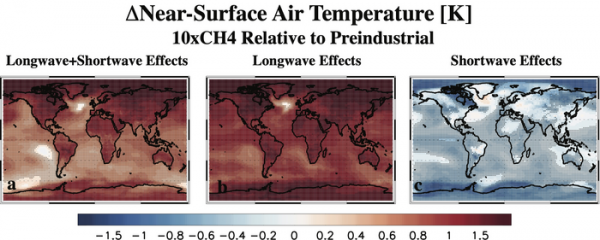Most climate models do not yet account for a new UC Riverside discovery: methane traps a great deal of heat in Earth’s atmosphere, but also creates cooling clouds that offset 30% of the heat.
Greenhouse gases like methane create a kind of blanket in the atmosphere, trapping heat from Earth’s surface, called longwave energy, and preventing it from radiating out into space. This makes the planet hotter.
“A blanket doesn’t create heat, unless it’s electric. You feel warm because the blanket inhibits your body’s ability to send its heat into the air. This is the same concept,” explained Robert Allen, UCR assistant professor of Earth sciences.
In addition to absorbing longwave energy, it turns out methane also absorbs incoming energy from the sun, known as shortwave energy. “This should warm the planet,” said Allen, who led the research project. “But counterintuitively, the shortwave absorption encourages changes in clouds that have a slight cooling effect.”
Read more at: University of California - Riverside
Annual mean near-surface air temperature response to methane, decomposed into (a) longwave and shortwave effects; (b) longwave effects only; and (c) shortwave effects only. (Photo Credit: Robert Allen/UCR)


